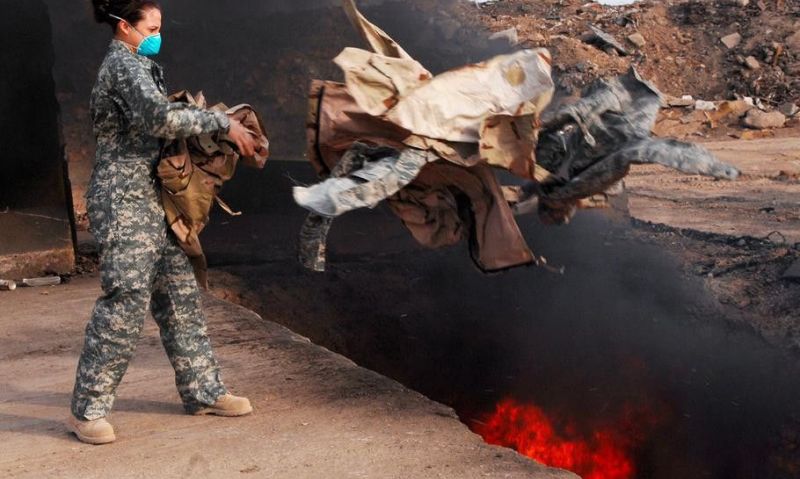
Updates geared to paving the way for improved research into health of veterans exposed to toxins and other hazards while serving.
Today, the U.S. Department of Veterans Affairs announced the launch of the redesigned Airborne Hazards and Open Burn Pit Registry (Burn Pit Research Registry). The Burn Pit Registry is a database that combines veteran and servicemember data to help VA better understand, research, and ultimately improve treatment for the health challenges facing veterans exposed to airborne hazards and burn pits during their military service.
The registry is an important research tool that enables VA to identify and study health challenges spanning the veteran and servicemember population as a whole — providing veterans and servicemembers an opportunity to help improve the care and benefits of veterans and servicemembers in generations to come. The registry will now include more than 4.7 million veterans and servicemembers who meet participation criteria based on Department of Defense records.
Importantly, participating in or opting out of the registry does not impact nor determine eligibility for veterans’ individual VA health care or benefits. Those who do not wish to participate in the Registry can opt out by completing this online form.
“The Burn Pit Registry is fueling groundbreaking research and enabling VA’s ability to identify and proactively address health challenges that toxic-exposed veterans face at a population level,” said Under Secretary for Health Shereef Elnahal, M.D. “While the registry does not impact an individual veteran’s health care or benefits, it does serve as a catalyst for advancing new and innovative treatments for the veteran population as a whole — including informing decisions related to presumptive conditions, more precise predictive medicine, and proactive veteran care. This redesign massively expands the registry and reduces the participation requirements for veterans, paving the way for critical research in the coming years.”
While this research database does not impact individual care and benefits, there are many avenues for veterans to reach VA for the services they deserve. VA encouragess veterans seeking screening, health care, or benefits for toxic exposures to visit VA.gov/PACT or call 1-800-MYVA411.
This redesigned version of the registry incorporates extensive veteran feedback, expands participation criteria, automatically includes participants in the registry, and simplifies participation requirements.
Veterans and servicemembers (living or deceased) who, according to DoD records, served in the military campaigns or theater of operations listed below during the designated time frame will be automatically included:
· Operations and Campaigns: Desert Shield and Desert Storm; Iraqi Freedom; Enduring Freedom; and New Dawn.
· Iraq, Afghanistan, Kuwait, Saudi Arabia, Bahrain, Djibouti, Gulf of Aden, Gulf of Oman, Oman, Qatar, United Arab Emirates, waters of the Persian Gulf, Arabian Sea, Red Sea, Syria, Uzbekistan, and Egypt between Aug. 2, 1990, and Aug. 31, 2021.
· Somalia since Aug. 2, 1990.
· The Southwest Asia theater of military operations and Egypt any time after Aug. 2, 1990
· Afghanistan, Djibouti, Jordan, Lebanon, Syria, Uzbekistan, or Yemen any time after Sept. 11, 2001.
· Associated airspaces with the countries listed above as well as the waters of the Persian Gulf, Arabian Sea, Gulf of Aden, Gulf of Oman, and the Red Sea.
This list is in addition to those who were based or stationed at a location on or after Sept. 11, 2001, where an open burn pit was used in Afghanistan, Iraq, Uzbekistan, Egypt, or Syria.
The data included in the registry includes deployment locations, military personnel information, and demographics to include gender, race, and ethnicity. No medical information will be stored in the registry. Veteran and servicemember data will be accessible only to select VA epidemiologists and researchers and institutional review board-approved researchers. It will be used to conduct research on the cohort over a period of time. The results will inform the policy decision-making efforts of VA executive leaders, including those related to presumptive conditions.
To learn more, visit www.publichealth.va.gov/exposures/burnpits/registry.asp.
- Veterans Healthcare

